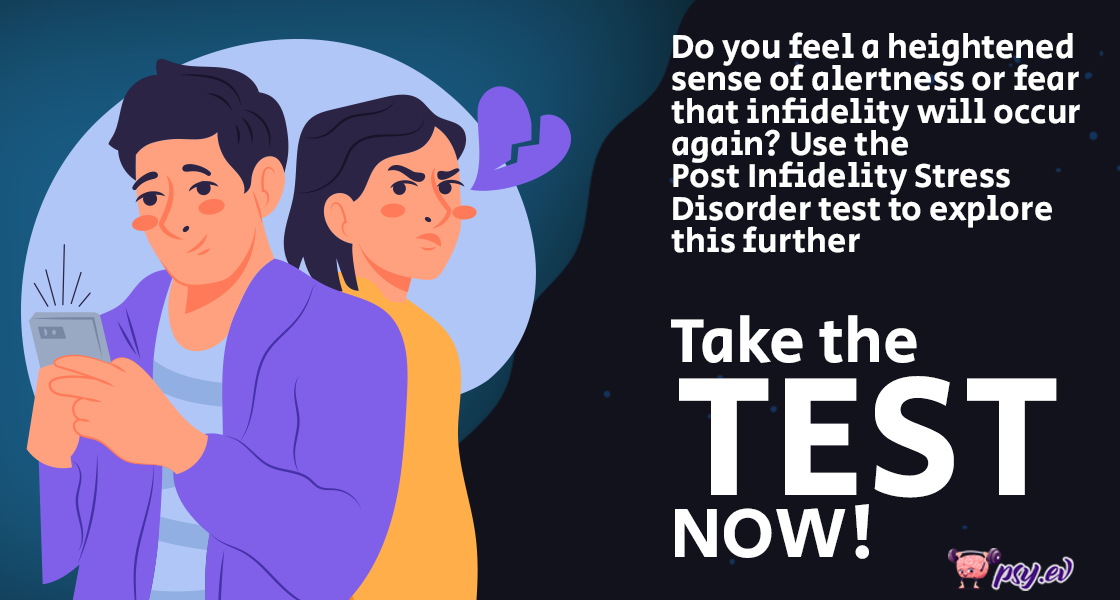Being the victim of your partner's infidelity may be incredibly difficult and upsetting. Negative emotions such as anger, pain, and fear of it happening again can develop. It is important to love and care for yourself to heal. Take this post-infidelity stress disorder test if you feel like you are showcasing such signs after experiencing betrayal. It’s a well-researched test that will help you identify if you are showing signs of PISD. You can then take appropriate measures to treat it.
What Is PISD Exactly?
A traumatic event in a person's life may leave a lasting impact on the mind. It may turn into a mental health condition called post-traumatic stress disorder (PTSD). Post-infidelity stress disorder (PISD) is similar to PTSD. Without intervention, the symptoms usually deteriorate rather than improve. Because of the emotional strain from the abuse of trust from your partner, the relationship may become meaningless. Infidelity may result in a lot of suffering and upheaval.
Three types of PISD responses are incursion, hyperarousal, and constriction.
Flashbacks, nightmares, and obsessions are examples of intrusive symptoms. It happens due to mental or actual imagery connected to the betrayal. A flood of intrusive thoughts, memories, and flashbacks can suddenly manifest while listening to music, conversing, or seeing ordinary objects. This can cause you to hold your breath, cry, or obsess over little things.
Hyperarousal signs might appear as emotional arousal, hypervigilance, or physical arousal. Other signs of hyperarousal include trouble sleeping, sudden anger outbursts, eating disorders, and trouble focusing.
On the other hand, constriction manifests as repressed ideas, emotions, and behaviors related to the betrayal. This sometimes includes experiencing numbness, acting distantly or withdrawing from others, and exhibiting little or no interest in routine or previously enjoyable activities.
The betrayed partner may remain extremely sensitive and vigilant even after discovering the affair, ready to respond to any imagined threat.
The Step Towards Healing
The best course of action is self-care. You should put yourself first and take care of yourself by eating well, using less social media, getting enough sleep, exercising, and spending time with loved ones.
It is important to spend some time identifying and working through PISD. Accepting the circumstance and moving on from it is challenging but not impossible. Therapy may just be the answer.
Furthermore, techniques for cognitive restructuring can assist in addressing the individual's story of the infidelity and exposing them to it gradually so it doesn't seem as strong and unacceptable.
By employing exposure strategies, the person who feels betrayed might start the healing process by intentionally focusing on the specifics of the infidelity rather than ignoring them. To comprehend the triggers, reasons, and potential paths ahead for both parties, therapy can also examine what transpired in the relationship before the trauma.
Being the victim of your partner's infidelity is trying and distressing. It's crucial to be kind to yourself, show love and compassion, and take things slowly while you recover and digest the betrayal.
Although you cannot undo or control the past, you may choose more carefully how you want to go in your relationships on an emotional, mental, and practical level.


